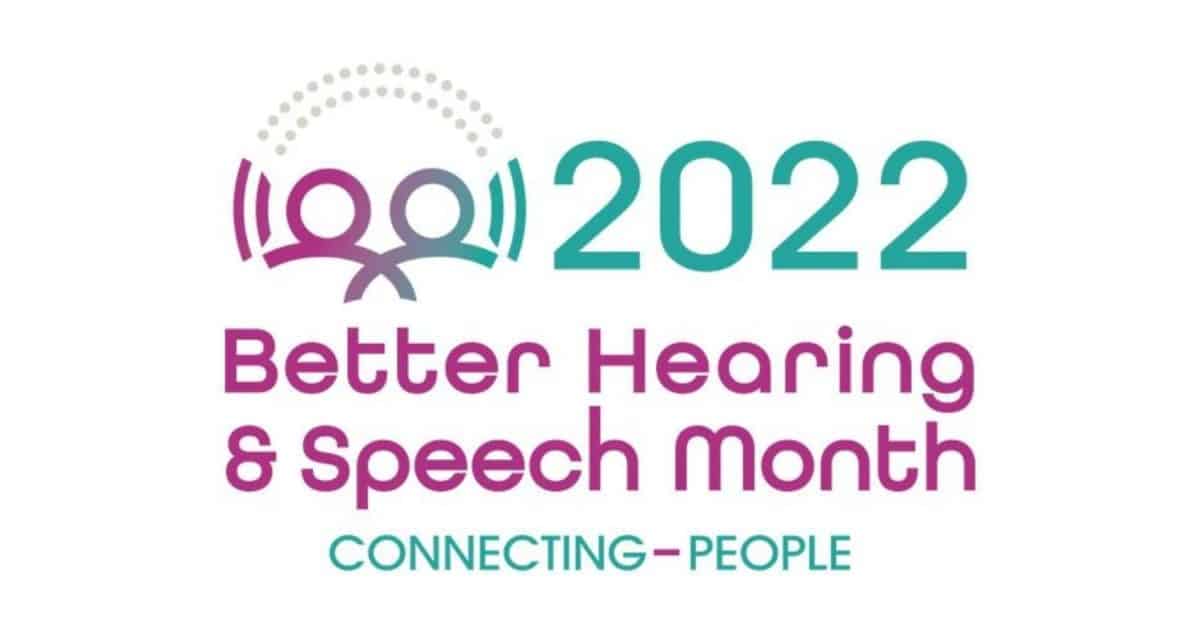- Can Swimming With Hearing Aids Be Safe? - May 7, 2025
- Why Hydration Matters for Hearing Health - April 9, 2025
- Ensuring Safe Travels with Hearing Aids - March 7, 2025
May is Better Hearing and Speech Month, and this year, the American Speech-Language-Hearing Association’s theme is “Connecting People.”
If we are one of the lucky ones, we take our five senses for granted. They fundamentally ground us in our reality and we depend on them not just for our basics of safety and survival but they are also the means for life’s greatest pleasures. It’s stating the obvious, but we depend on our senses for all the ways that we understand and connect with others. And our relationships are key to our feelings of security and contentment.
The effects of hearing loss on relationships
Hearing loss will create a strain on every relationship in your life, especially the day-to-day communications with friends and family. Communication breakdowns induce stress and frustration and stifle the spontaneity that so much of our basic satisfaction depends on. Whether discussing an important subject or just observing shared trivialities, hearing loss reduces this and potentially isolates both partners in a relationship. Even the healthiest and most supportive relationships can get unnecessarily fatigued.
Consider the degree to which the background noise of our environments is beyond our control. Remaining present for a friend, partner, or family member can get challenging enough on top of all of life’s simple upkeep. When the nature and quality of your conversations are forced to change in ways beyond your choosing, this impacts the intimacy of the connections. The nuances of humor and reflection are the building blocks of any relationship and these subtleties are exactly what hearing damage threatens most.
You may be required to take action on behalf of a loved one
It may fall on you to make someone you care about aware that they are even suffering from hearing loss. Many times disabling hearing loss is more apparent to others than the person that is suffering from it themself. You will recognize it by the symptoms: They ask you to repeat yourself or complain that you mumble, turn up the TV or radio. And it may be tough for them to admit to themselves because doing so means appropriate action needs to be taken.
This is why you may need to clearly explain the risks and consequences of untreated hearing loss. And they are many: frustration, resentment, impatience, loneliness, and withdrawal from social activities are among the most common. Choose a relaxed time and place to speak frankly about it in an affectionate, but firm tone. Be careful that your words can not be misunderstood as patronizing. Explain how much your relationship means to you and your observations of how hearing loss is affecting it. Use specific examples like when they couldn’t hear the doorbell or telephone or the alarm clock. These examples may seem minute and inconsequential on their own, but taken as a sum they have a cumulative effect. Explain patiently and calmly how their hearing loss is taking an emotional and physical strain on you and how you worry about the threat of cognitive decline that they face if their condition intensifies.
Make an appointment for yourself to get your hearing evaluated and invite them along. Doing this together will normalize the process and minimize any stress they may feel about it. And having an expert’s objective measurement of the damage will help drive the point home that the condition is indeed real.
Take action now
This Better Hearing and Speech Month, we acknowledge that there is no stigma or shame in experiencing hearing loss! This common condition impacts people of all ages for a myriad of reasons. Parents understand intuitively the risks that it poses if their child shows symptoms. Of course, they most often intervene quickly to guarantee their childhood development and social connections remain on schedule.
So if these consequences are so apparent when someone that depends on us is at risk, why should it be any different because of their age? Studies estimate that 15% of adults over the age of 20 deal with disabling hearing loss. That includes just under 25% of those ages 65 to 74 and 50% of those 75 and older. With the population aging, these numbers will increase in the coming decades.
But the knowledge and technology exist now to spare anyone from having to endure a diminished quality of life. Make an appointment today to see one of our specialists, the first step to guaranteeing that your life is lived to its fullest potential, connecting deeply with your loved ones.

